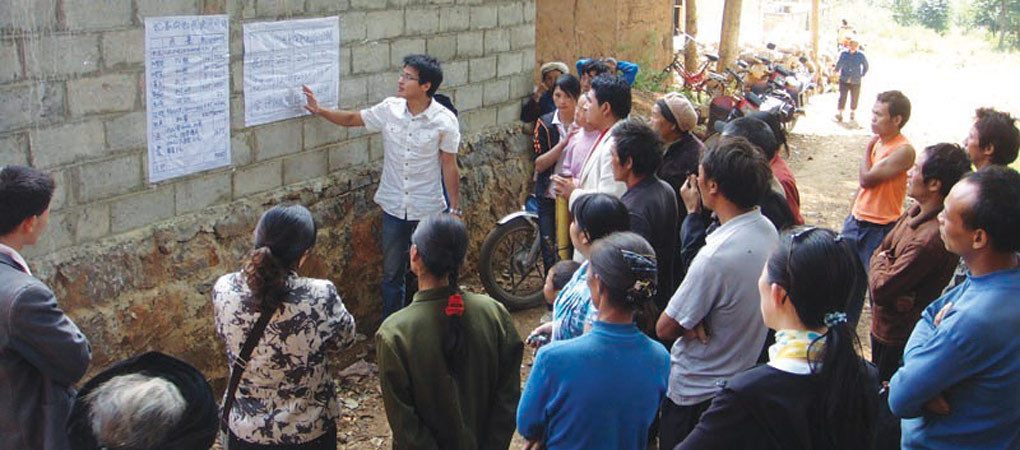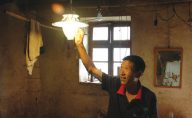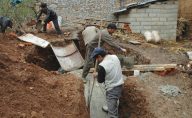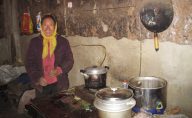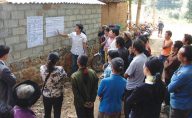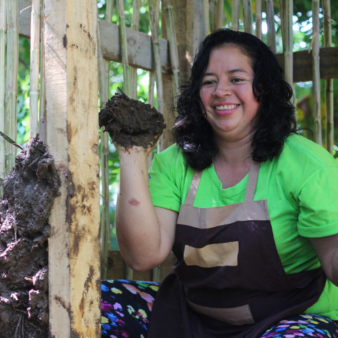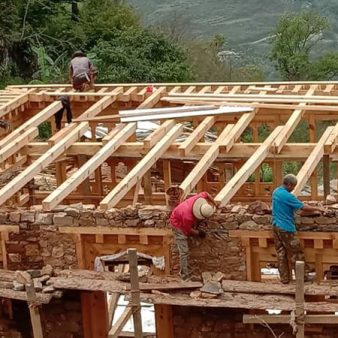Initiative Développement (ID) is a French non-governmental organisation working in the field of international aid, founded in 1994 in Poitiers, France. For more than 18 years, ID has worked with deprived populations and communities in seven different countries: Benin, Chad, China, Congo-Brazzaville,Comoros, Haiti, and Togo. ID’s areas of intervention vary based on local conditions and needs and include providing basic services in water, sanitation and hygiene; education and teacher training; health and HIV/AIDS; agriculture and rural development and renewable energy. In 2007, ID initiated a project in the Guizhou and Yunnan provinces of China retrofitting rural farms with biodigesters connected to a new toilet and animal pen which enables households to have access to biogas, a clean and renewable energy source. Through the Gold Standard certification scheme, the project has guaranteed funding until 2020 from carbon credit sales to ensure the maintenance and long term use of the biodigesters and continued training provision to households. Working in partnership with government agencies and other organisations in China, the project is significantly scaling up the approach, reaching an additional 1.7 million households by 2020.
Project Description
Aims and Objectives
The project aims to improve local living conditions and environment for low-income rural populations, especially ethnic minorities, in the Yunnan and Guizhou provinces through access to a clean and renewable source of energy.
Context
The Yunnan and Guizhou provinces in China are ranked 31st and 29th respectively out of the 31 provinces of China in terms of GDP per capita. ID chose to work in mountainous areas (average altitude 2,100m) because their remoteness renders them less accessible for assistance from others and farming conditions on the steep slopes are difficult. Most of the ploughing is done by animals and the products are directly consumed by the farmers. Poor rural households in these areas mostly live in houses made of mud bricks and straw roofs that are not well insulated and where a lot of energy is spent during the winter for heating. Residents do not have a separate kitchen, leading to cooking and other kitchen chores being carried out in the main room. The fuel used for cooking is usually firewood, mineral coal or agricultural residues. Combined with inefficient cook stoves, cooking becomes a major source of indoor air pollution. Additionally, animal manure is piled outside the house before being used in the fields in spring for fertilising purposes. Some hygiene concerns are associated with these practices since the manure can be run off by the rain into the local aquifers and rivers or be a direct source of contamination to the villagers living nearby. The houses have very basic toilets, often a mere pit in the ground with a couple of planks on top.
Key features
The key feature of the project is to retrofit rural farms by building an integrated waste management system. The main infrastructure is a biodigester that is connected to a new toilet and to the existing animal pens. The biodigesters process human and animal waste, an anaerobic digestion process that converts the decomposed matter to biogas and produces bio-slurry. Farmers can then use the biogas in the kitchen for cooking (via a specially designed biogas stove and rice cooker) and lighting (biogas lamp). The bio-slurry is either used directly in the fields as fertiliser or is further composted before being used. The anaerobic digestion process kills 99 per cent of the harmful bacteria making it much safer to use in the field.
The project is carried out in partnership with the Zhaoyang Forest Bureau, a government agency in charge of the construction of biodigesters in the area who facilitated the project by introducing ID to local village leaders which was especially useful in the Chinese context.
What sets this project apart from other biogas projects in China is that it also focuses on training and long-term maintenance of the biodigesters – a major issue in China – so that working rates are as high as possible. ID provides three types of training: training to new households at the end of the construction process; refresher training every two years to review and improve beneficiaries’ knowledge; and training in primary schools to raise students’ awareness on topics linked to the use of biogas. The approach is now being significantly scaled up and transferred by other organisations and government agencies.
The project is registered with the Gold Standard Foundation, which manages the certification programme for carbon offsets in the voluntary carbon market and is recognised internationally as the benchmark for quality in renewable energy and energy efficiency carbon offset projects.
Covering costs
Each individual biodigester costs approximately US$530 for the materials and guidance from a skilled mason. This covers the new toilet built on top of the biodigester, the connection from the existing animal pen to the biodigester, the biogas stove, rice cooker and biogas lamp. Out of this US$530, between US$145 and US$200 is paid by each household who also provides labour for the construction.
Between 2007 and 2011, 2,750 biodigesters have been built by the project costing around US$1.6 million which have been funded by The GoodPlanet Foundation, the Trafigura Foundation, the Ensemble Foundation and the French Embassy in China. About US$ 602,000 was advanced by the GoodPlanet Foundation to enable the project to take part in the carbon offset programme with the construction of the first 1,300 biodigesters under the Gold Standard and the remaining money was given as a grant. The project is currently in a follow up phase (until 2020) where approximately US$53,500 is spent annually to ensure the proper maintenance of the biodigesters and to provide continued training to the households. The funding of this phase is provided by the revenue generated through the sale of carbon credits. The carbon credit sales also allow the reimbursement of the initial investment made by the Good Planet Foundation to build the biodigesters.
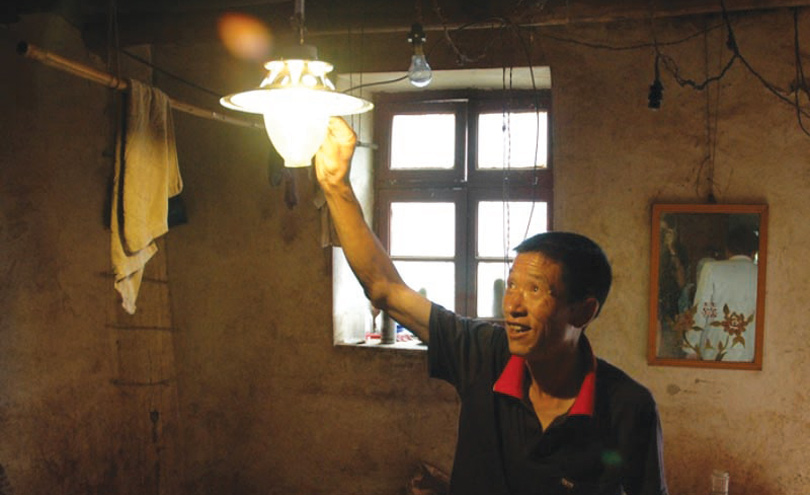
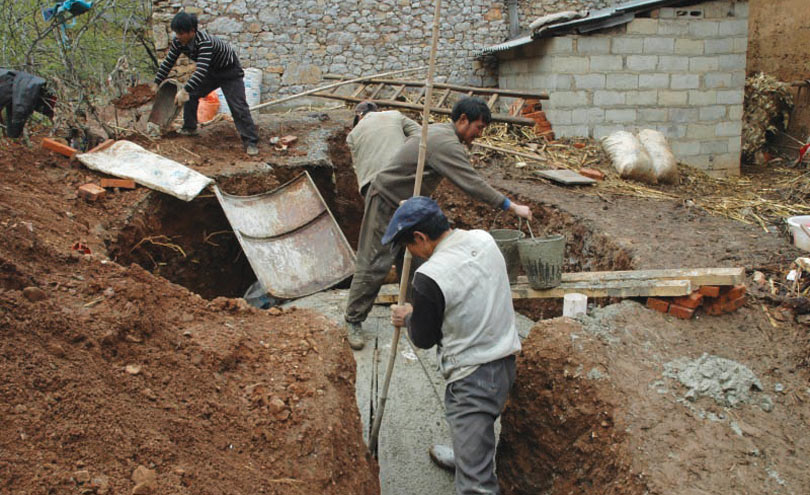
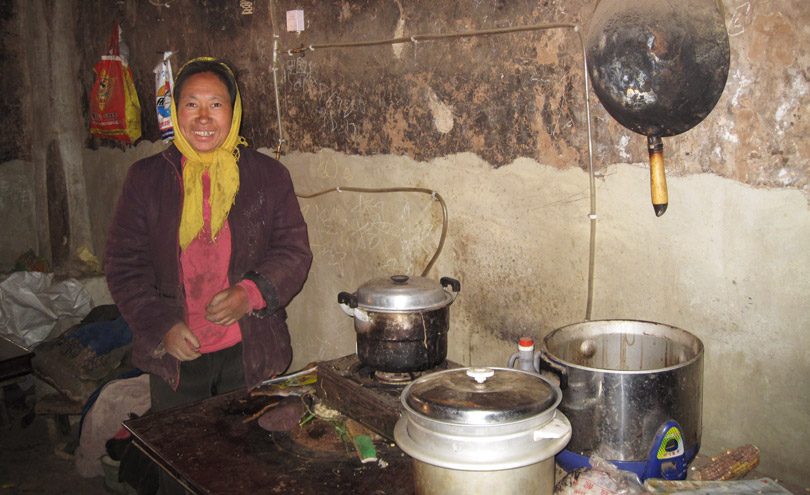
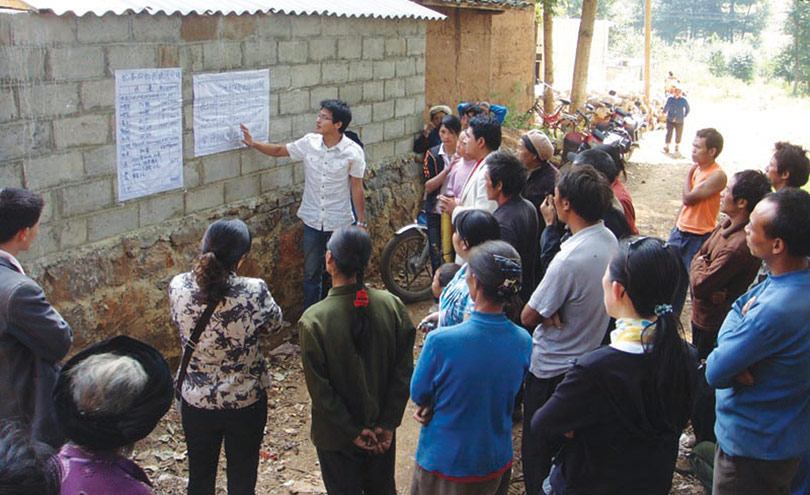
Impact
- Between 2007 and 2011, 2,750 biodigesters were built in as many households in the Guizhou and Yunnan provinces. With approximately four people per household, the project has directly impacted around 11,000 people.
- The use of biogas stoves has significantly improved the indoor air quality of residents’ homes and reduced respiratory infections from coal or firewood combustion.
- Reducing coal consumption allows each family to save up to US$115 per year, a significant amount given average annual incomes.
- New toilets built for every household and connecting the animal pens to the biodigester have improved the hygiene and sanitary conditions in the homes.
- Through participation in the construction phase and ongoing training sessions, households gain knowledge and skills in safety, the use of bio-slurry on crops as a natural fertiliser, hygiene, and the management and maintenance of biodigesters and biogas stoves.
- Primary schoolchildren also learn about safety, hygiene, environmental protection and climate change through trainings in schools.
- Local jobs are generated for technicians, social workers, trainers and surveyors.
- Reduced deforestation (which helps protect water source) as the biogas produced allows households to use less firewood.
- Surveys conducted show an average reduction of 3.5 tons of CO2 per household per year. Every day between 5kg of coal or 8kg of firewood are replaced by biogas.
Why is it innovative?
- Although the use of biodigesters is quite common in China, long-term maintenance was and remains a major issue. This project provides an innovative solution by using carbon funding to ensure the maintenance and long-term use of the biodigesters and developing an effective training and follow-up system.
- ID was the first organisation to have carbon credits issued for a domestic biodigester project in China (second in the world).
- Focus on training of the beneficiaries on the proper use, management and maintenance of the biodigesters.
- Focus on impact and credibility, with the Gold Standard certification which involves a rigorous monitoring system and, unlike some other certification systems, requires the project to prove that it is contributing to sustainable development and will not have any adverse socio-economic impacts.
What is the environmental impact?
The project sources all of the building materials locally and the greenhouse gas emissions linked to the production of these materials is taken into account when calculating the project’s emission reductions in its bi-annual monitoring surveys.
Pressure on wood fuel sources and greenhouse gas emissions decreases as biogas replaces wood or coal use. Besides producing fuel, biodigesters have the added benefit of producing a high-nutrient fertiliser from anaerobic fermentation of animal and human waste.
As a carbon offset project with a social impact, the project presents an opportunity for citizen consumer action, allowing individuals and companies to invest in it to balance out their own carbon footprints and help reduce net emissions.
Is it financially sustainable?
Funding for the follow up phase is guaranteed until 2020 through the carbon offset scheme. There is an incentive to deliver the project to a high standard, as the more effectively the biodigesters work the more carbon credits are issued and more money can be spent to ensure good maintenance and follow-up.
The project provides local jobs for the specialised technicians that oversee the construction of the biodigesters. Providing a local source of income for the technicians is significant in a context where many workers migrate to the cities to find jobs. ID also employs a team of seven people from the area to coordinate the project with salaries above the local average.
Reduced time for cooking and collecting wood fuel enable the farmers to have more time for agricultural production and crop improvement helping them to generate more income. Farmers save on fertiliser costs as they get to produce a high-nutrient fertiliser from the digested bio-slurry. Families have a clean and easy-to-use energy source for their cooking and lighting needs for four to six hours a day.
In terms of institutional funding, ID has had a fairly stable budget of about US$5.3 million for the last several years. The funds come from public sources (60 per cent) and from private foundation sources (40 per cent).
What is the social impact?
The local communities are involved in the project at each stage. Before implementation, ID organised a Local Stakeholder Consultation where the local farmers, village officials and relevant NGOs were invited. Their comments on the project impacts were gathered and summarised into a sustainability matrix. A ‘Do No Harm’ assessment to identify any potential environmental, social and/or economic impacts was also carried out with the community as well as a discussion on a sustainability monitoring plan. A detailed report of this meeting was submitted for review by the Gold Standard and is publicly available on the website.
During the implementation phase, the households are responsible for most of the construction work under the supervision of a skilled mason. They also contribute financially towards the cost of the materials. The training process includes the mentorship of previous beneficiaries sharing their experience with biogas and demonstrating its proper usage to new households. Greater community cooperation and integration is fostered through the project as neighbours help each other during the construction work.
Barriers
Operation and long-term maintenance of the biodigesters were found to be the main barriers. Although the technology is quite simple, the biodigesters require proper operation and adequate maintenance to be able to work over the long term. A well-built, well-maintained biodigester can last more than 30 years, but without the proper training and maintenance it may stop being used after only a couple of months.
To overcome this problem, ID put a lot of effort into the initial training of the beneficiaries. Dedicated staff created original training tools and content. Training sessions are held next to an already built biodigester and include mentorship of a previous beneficiary who will share his/her experience with biogas. A small examination is held to assess understanding of the training content. Refresher trainings are organised every two to three years to sustain the beneficiaries’ knowledge. ID also developed a standardised diagnostic procedure that identifies more than 20 potential kinds of breakdowns a biodigester can encounter. Professional technicians and maintenance shops in the neighbourhoods are available to diagnose and repair problems.
Lessons Learned
- Building the biodigester is the easy part; the real challenge is to provide a good maintenance and training system so that the biodigester can be used effectively over the long term.
- ID has adapted its maintenance system over time and developed standardised diagnostic and reparation procedures as well as a dedicated database that allows them to follow up precisely on the status of the biodigesters that were built.
Evaluation
ID has developed a comprehensive monitoring process which assesses not only the fuel saving but also other impacts of the project on sustainable development such as the improvement of hygiene, the saving on fuel purchase, qualitative improvement of indoor air quality, local job creation. Twice a year, around 260 households are randomly selected and surveyed to find out to what extend the impacts described above are achieved. The results are independently verified by the Gold Standard.
Transfer
The considerable advantages drawn in terms of health, hygiene, sanitation, development, and environment led ID to rapidly expand the project. In partnership with the Yunnan Green Environment and Development Foundation, ID has launched a project that will build 150,000 biodigesters in Yunnan province between 2012 and 2015 and up to one million by 2020. This project is also Gold Standard-certified with 26,000 biodigesters already constructed. The carbon revenue will be used to build local service centres managed by technicians who will be trained by ID to improve their skills to run the centres and train the biogas users in the area to ensure their long-term maintenance.
The work of ID has inspired other carbon project developers in China as the Yunnan Green Environment and Development Foundation used the same model with ID’s support to build 3,000 biodigesters in the southwest Yunnan province. ID has also been asked by the French Development Agency (AFD) and French Global Environment Facility (FFEM) to provide expertise and experience to similar projects launched in the Qujing municipality in Yunnan for 24,000 biodigesters and in the western half of the Sichuan province for 700,000 biodigesters.
ID’s partnership with local authorities is tailored for China where the know-how (and finance) is there for building biodigesters but where long-term use is an issue.

